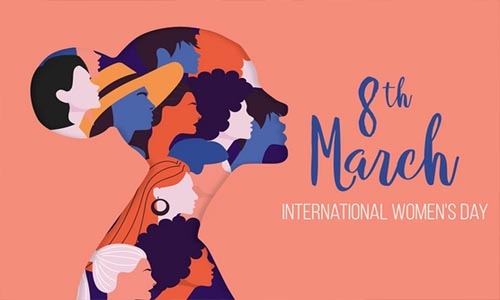A ‘struggle’ for women’s rights and equality
TDT | Manama
The Daily Tribune – www.newsofbahrain.com
The International Women’s Day, which has been celebrated annually on March 8, for more than a century, has been a symbol of feminist struggle and demands for the promotion of women’s rights in the face of discrimination and inequality.
The first initiative to devote a day to women’s issues dates back to 1909 and was behind the American Socialist Party.
However, the principle of establishing an International Women’s Day was approved by the International Conference of Socialist Women in August 1910 in Copenhagen under the impetus of the German Clara Zetkin, but without specifying a date.
A new dimension in developed countries
During that period, women’s voices rejecting discrimination in employment and demanding the right to vote were taking on a wider dimension in developed countries.
The women’s suffrage movement arose in 1903 in Britain, where women gained this right (from the age of 30) in 1918.
The first edition of International Women’s Day dates back to March 19, 1911, when more than a million people demonstrated for women’s rights in Austria, Denmark, Germany and Switzerland.
Women’s suffrage
In the early years, these days were closely related to workers’ and socialist movements.
In 1914, socialist women gathered on March 8th to specifically demand women’s suffrage, and this date witnessed the first actual demonstration.
After forgetting the occasion for a period after the start of World War I in 1914, International Women’s Day marked a new beginning in Russia.
On March 8, 1917 (February 23 according to the Russian calendar), demonstrations took place in St. Petersburg (then Petrograd), demanding bread and the return of men from the battlefronts.
The Russian woman, the Tsar, and Lenin
This is the first chapter in a series of events that led to the tsar’s resignation and the Russian Revolution.
Lenin declared this date an official day for the celebration of women on the occasion of this “first day of the official revolution.” After the Second World War, the eighth of March in all the countries of the Eastern Bloc became a day to celebrate women and communism.
Symbolism of the date of March 8
Since the early 1970s, Western feminist movements have clung to this symbolic history and made it a stop chair in the struggle for equality, political and social rights, for the legalization of abortion and equality at work.
In 1977, the United Nations and other international organizations declared March 8th “International Women’s Day.” Many demonstrations took place on the five continents on the eighth of March 2010 on the occasion of the first centenary of the launch of International Women’s Day.
The United Nations chose to focus on equality in work and society through the title of this anniversary, which is “Equal Rights, Equal Op
Related Posts

